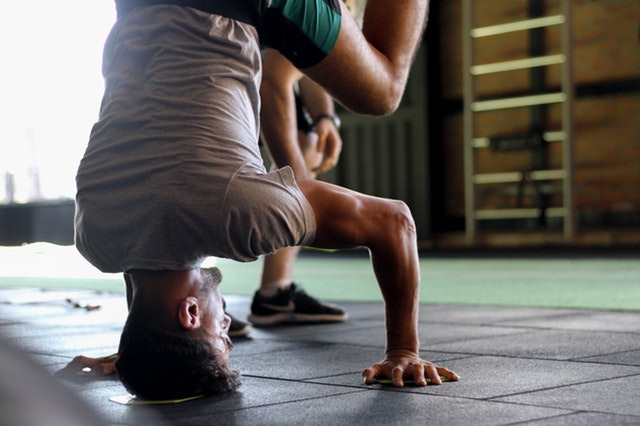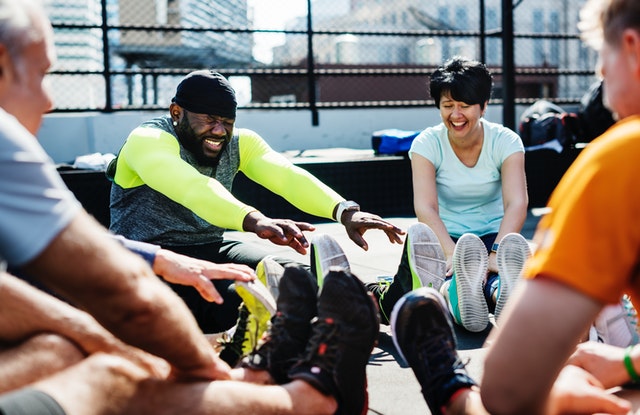How To Improve Your Health with Exercise
May 10, 2019

OK. Time to get off the couch. Stop playing that video game. Turn off the TV.
We hear a lot about how important exercise can be in maintaining and elevating our health. It’s a fact that’s backed by loads of scientific research and studies. Luckily, it’s truly one of the things we have the most control over in pursuing a healthy lifestyle.
It’s really pretty simple. We just don’t move enough! One definition of exercise is movement that works the muscles enough to burn calories.
For most people, burning 700 to 1,000 calories during a given week is a minimum level for good health. That’s really not a lot, considering the calorie count in many meals. And it only requires about 30 minutes a day.
What’s the Point of Exercising?

Here’s why exercise is so important at any age:
Defend Against Chronic Conditions: Physical activity offers a host of benefits for cardio health, insulin sensitivity and other conditions with serious potential consequences such as high cholesterol and blood pressure.
Just Feel Better: Get those endorphins going as well as serotonin and norepinephrine to help fend off stress, anxiety and depression.
Relax and Get Some Sleep: We just talked about mood enhancement. Exercise even appears to generate changes in body temperature that lead to better sleep.
Don’t Forget the Brain: Increased blood, oxygen and hormone flow are beneficial for memory, learning, and even diseases like Alzheimer’s and schizophrenia.
Get That Healthy Glow: Moderate exercise can boost natural antioxidants and increase blood flow, both of which are good for the skin.
Lose Some Weight: Ironically, dieting lowers the metabolic rate and can actually delay losing weight. It takes exercise to increase that rate and burn calories.
Support Bones and Muscles: Exercise helps muscles absorb amino acids for growth and integrity, while bone density keeps areas like hips and joints in good shape.
Boost Your Energy: The effects of exercise bring a sense of replenishment and health. It can even improve energy levels in conditions like chronic fatigue syndrome and cancer.
It’s Not a Pain: Just the opposite. Exercise can reduce chronic pain in the lower back and shoulders as well as from fibromyalgia.
What Are the Best Exercises for Health?

There are four main types of exercise:
- Aerobic
- Flexibility
- Strength
- Balance
Ideally, your exercise program incorporates elements of all four. In fact, each one can help make the others safer and more effective. In terms of how hard to work out, “moderate intensity” is a good guideline.
Aerobics may be the most important since it has an impact on the cardiovascular system, meaning the heart and circulatory system. Examples include walking, biking, swimming, jogging and even dancing.
Flexibility or stretching limbers up muscles that tend to shorten and get weaker with age. It’s a way to avoid muscle injuries and back pain. It should also be done prior to other exercises to keep from straining muscles and tendons.
Strength training benefits both muscles and bones. This can be especially relevant as we age and our bones lose calcium. Strong muscles and tendons can improve balance to avoid falls. Activities include free weights and weight machines or simple exercises with an elastic band.
Balance tends to decrease as we age, and falls are one of the most common causes of injuries. Routines focused on balance include standing on one leg and bending down to touch your toe as well as Pilates, tai chi and yoga.
What to Ask
Hopefully we’ve convinced you that exercise can have a pretty extraordinary impact on your quality of life, right now and as you get older. And it doesn’t have to cost much or take a huge of amount time.
Anyone you talk to about exercise will tell you how important it is to find activities that you enjoy and that you will stick with. Of course, there are tons books and online resources available. Ask your friends, especially if you have specific goals or conditions in mind that they may share.
It’s also a good idea to ask your doctor for some guidance on what kinds of exercise are best, which ones perhaps to avoid based on your personal situation, and how best to ramp up your level of activity.
So get moving and get healthy!










